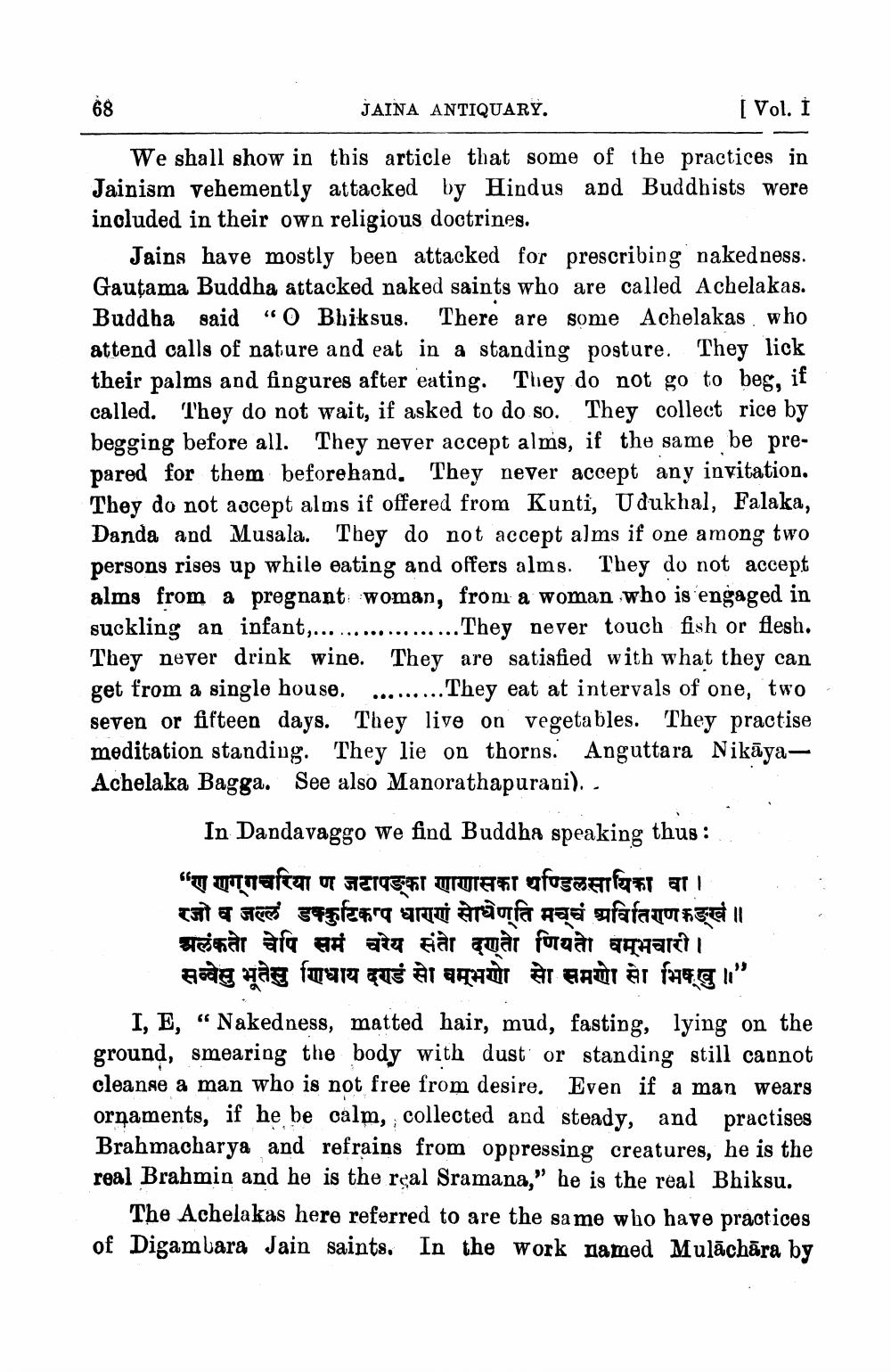________________
68
JAINA ANTIQUARY.
[Vol. 1
We shall show in this article that some of the practices in Jainism vehemently attacked by Hindus and Buddhists were included in their own religious doctrines.
Jains have mostly been attacked for prescribing nakedness. Gautama Buddha attacked naked saints who are called Achelakas. Buddha said “O Bhiksus. There are some Achelakas, who attend calls of nature and eat in a standing posture. They lick their palms and fingures after eating. They do not go to beg, if called. They do not wait, if asked to do so. They collect rice by begging before all. They never accept alms, if the same be prepared for them beforehand. They never accept any invitation. They do not accept alms if offered from Kunti, Udukhal, Falaka, Danda and Musala. They do not accept alms if one among two persons rises up while eating and offers alms. They do not accept alms from a pregnant woman, from a woman who is engaged in suckling an infant................... They never touch fish or flesh. They never drink wine. They are satisfied with what they can get from a single house. .......... They eat at intervals of one, two seven or fifteen days. They live on vegetables. They practise meditation standing. They lie on thorns. Anguttara NikāyaAchelaka Bagga. See also Manorathapurani). .
In Dandavaggo we find Buddha speaking thus : "ण णग्गचरिया ण जटापङ्का णाणासका थण्डिलसायिका वा। रजो व जल्लं डक्कुटिकाप धारणं साधेति मच्चं अवितिगणकङ्ख ॥ अलंकतो चेपि समं चरेय संतो दणतो णियतो वम्भचारी।
सम्वेसु भूतेसु णिधाय दण्डं सो बम्भको सो समण से भिक्खु ।" I, E, "Nakedness, matted hair, mud, fasting, lying on the ground, smearing the body with dust' or standing still cannot cleanse a man who is not free from desire. Even if a man wears ornaments, if he be calm, collected and steady, and practises Brahmacharya and refrains from oppressing creatures, he is the real Brahmin and he is the real Sramana," he is the real Bhiksu.
The Achelakas here referred to are the same who have practices of Digam Vara Jain saints. In the work named Mulāchāra by




